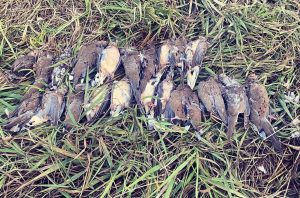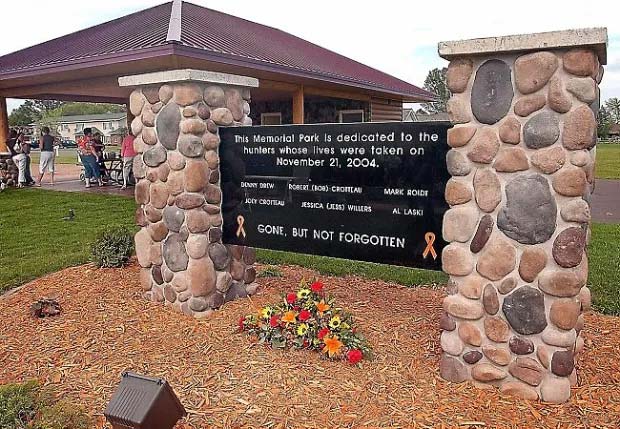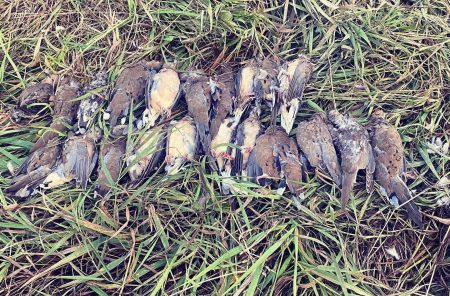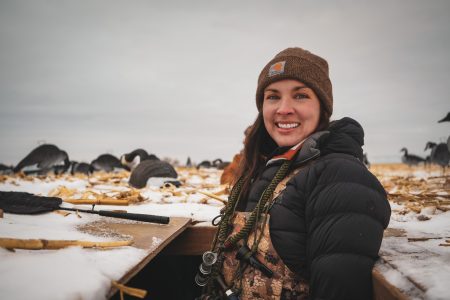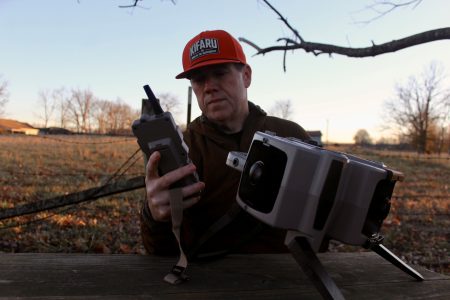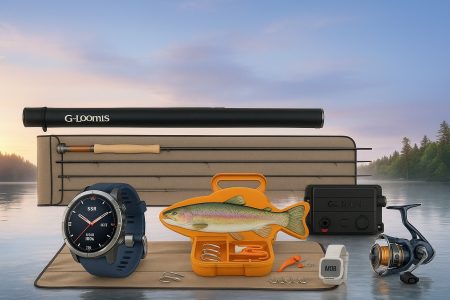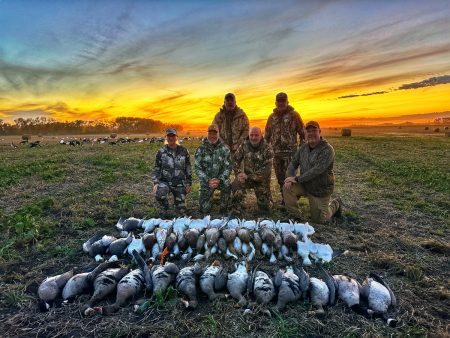It’s not an uncommon theme among hunters to assume they’ll both never break the law and never need to worry about self-defense in the woods. But in reality, it can be all too easy to inadvertently do something that results in some sort of issues with the DNR (fish and game), and just because you’re in the woods doesn’t mean you’re magically protected from danger. We’re going to go over the reasons why it can be smart to invest in some sort of hunting-related insurance, and we’re going to start with self-defense.
Self-defense isn’t just for city streets.
Every year when the major hunting seasons hit there are instances of violence in the fields and woods. Perhaps one of the more infamous cases took place nearly two decades ago in Wisconsin. In that instance, a truck driver trespassed on hunting land during deer season and was asked to leave by the landowner. Although the landowner and his friends had firearms—it was deer season, after all—they’d left them behind when they went to ask the trespasser to vacate the deer blind he’d entered. At first, the trespasser appeared to comply, but what he did was walk down the trail, stop to remove the scope from his rifle, and turn around to open fire on the hunters. Four of the hunters were shot in the back by the trespasser and two were shot in the sides. All six died. Two others survived and went on to testify in court, where the trespasser informed the judge and jury the dead had “deserved” to die.

You might be thinking that was deer hunting, and there’s no way other hunting seasons ever experience that type of violence. In 2021 in Tennessee, two young men in a duck blind were murdered by another duck hunter who visited their blind specifically to kill them. This took place on Reelfoot Lake and it’s not entirely unheard of for there to be altercations there during duck season (and at other locations, fights among duck hunters aren’t limited to that one spot). It’s a great example of the fact that violence can happen anywhere whether you’re in the middle of the Wisconsin woods or in a private duck blind in Tennessee.
When it comes to self-defense, it’s wise to follow firearms instructor John Farnham’s rules of stupid: don’t go stupid places with stupid people and do stupid things. Now, going hunting isn’t violating a rule, but there are behaviors that can be avoided while you are hunting. Unfortunately, what you can’t do is control the potentially violent behavior of other people.
Accidental trespassing is a thing (among other issues)
On the non-violent side of the spectrum, we have hunting-related issues like trespassing, poaching, and other seemingly minor violations. Maybe you have one too many of a certain species of dove or duck and the game warden just happened to appear at that moment. Maybe you shot a deer and it stumbled over the property line—and there’s no fence, so you didn’t even realize you’d trespassed. And maybe you’re missing a stamp on your license or shot a buck that violated the specific measurement requirements of the county. Even when you’re a cautious hunter, mistakes happen.
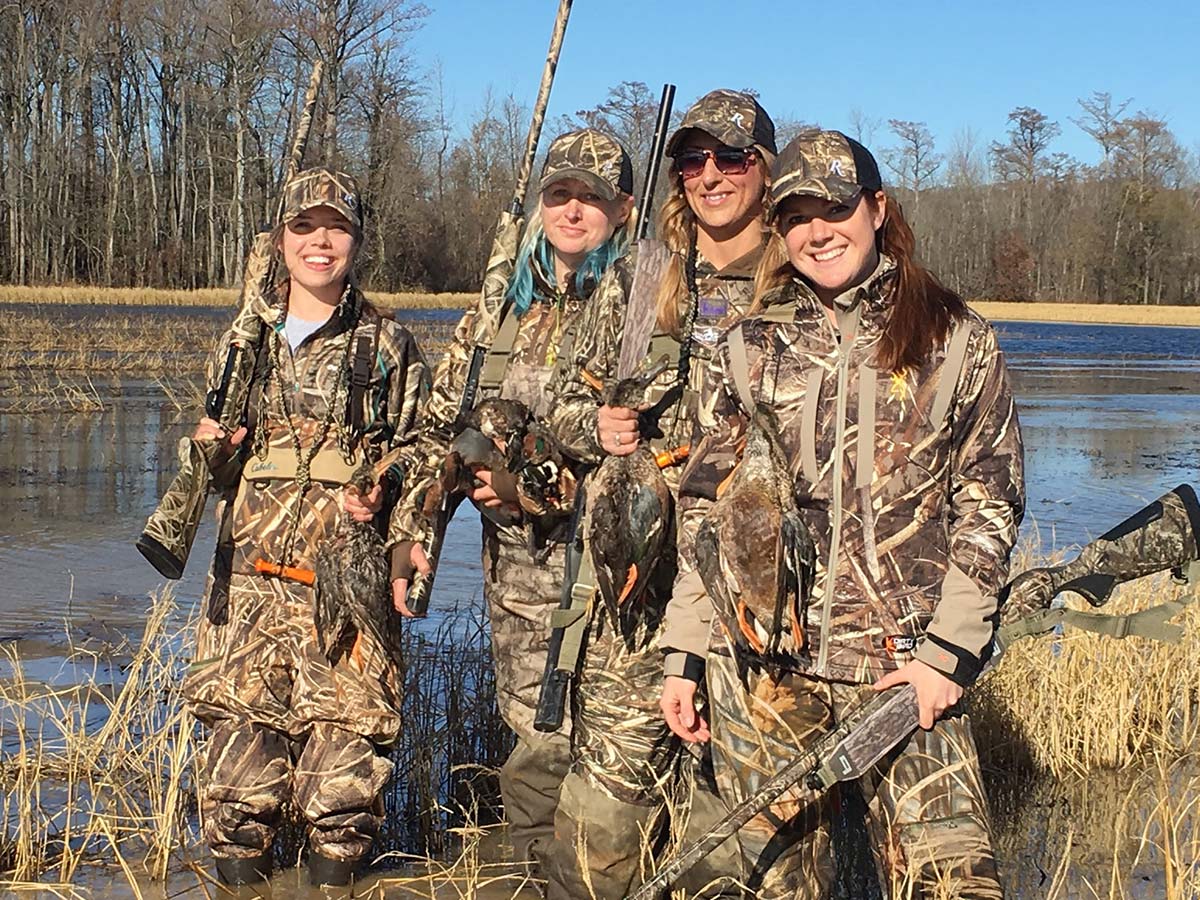
What is hunting insurance?
It’s important to note that there are several different types of insurance coverage specifically related to hunters and hunting. Some only cover liability when you’re hunting on leased land, some are for accidental death, and others focus on self-defense and potential violations. All types of coverage are smart to take a closer look at because, generally speaking, the financial investment is incredibly minor compared to what the cost will be in the event something happens, and you’re not covered.
The average hunting lease liability insurance covers either the insured hunter or the hunter and any guests (read your fine print). For hunting clubs and outfitters, there’s insurance available that covers injuries to third parties. Coverage might be commercial or private and may or may not include a large deductible. These are the types of insurance that typically have far less to do with anything related to self-defense or hunting violations and more to do with injuries that occur on someone else’s property. Make sure you read every detail of a potential liability plan, so you know if it’s something you want. Also take the time to look for specific verbiage that excludes medical or other coverage for events related to self-defense incidents.
When it comes to what many people would call insurance for self-defense or hunting violations, it’s really more accurate to call it incident coverage that relates to the coverage of certain legal fees. It’s not technically insurance. These coverage plans vary and might cover an attorney’s fees that are incurred while representing you for a covered incident. They may or may not cover things like lost wages, bail, or crime scene cleanup. There are a lot of nuances in self-defense coverage. If you already have self-defense coverage, check the language of the coverage to find out if it includes incidents that take place while hunting.
Coverage for hunting violations is more unique and is statistically more likely to be useful to you than coverage for self-defense incidents. After all, accidents happen, and whatever violation you find yourself facing could be an honest mistake—but it’s still going to cost you to correct it. Having a qualified attorney available for what can become enormous expense and related trouble like having your hunting license revoked, spending time in jail, or being fined is well worth it.
Just because your focus is hunting doesn’t mean you’re never going to need help from an attorney. And maybe you’d rather simply take your chances, but isn’t it better to plan ahead? The end result of a legal battle can involve losing your home, going bankrupt—and all manner of things.
Do your homework when choosing a plan to be sure it’s one that fits your specific needs. All coverage is not created equally, and all incidents aren’t going to be covered (and if they are, all incidents are unlikely to be covered in the exact same way by different companies).

How else can you stay safe while hunting?
Aside from following the laws and adhering to the aforementioned rules about avoiding stupidity, you can invest in some self-defense training. Classes taught by qualified, experienced people can provide invaluable information about a number of things such as situational awareness, de-escalation techniques, secondary defensive weapons, and more. Self-defense isn’t just about firearms.
If you’re taking your kids hunting, make an age-appropriate plan regarding what to do if you run into a potentially dangerous person. Also make a plan about what to do if that potential threat becomes an immediate one. All kids are different, meaning there is no magic conversation or script to follow. Figure out what your child is capable of handling and go from there—and don’t forget to change the plan as they get older.
Above all, enjoy the woods. Hunting is a fantastic tradition and one we hope to see go on for generations to come. Whether you’re after ducks, deer, or predators, we wish you the best of luck filling tags and your freezer.
Per our affiliate disclosure, we may earn revenue from the products available on this page. To learn more about how we test gear, click here.

